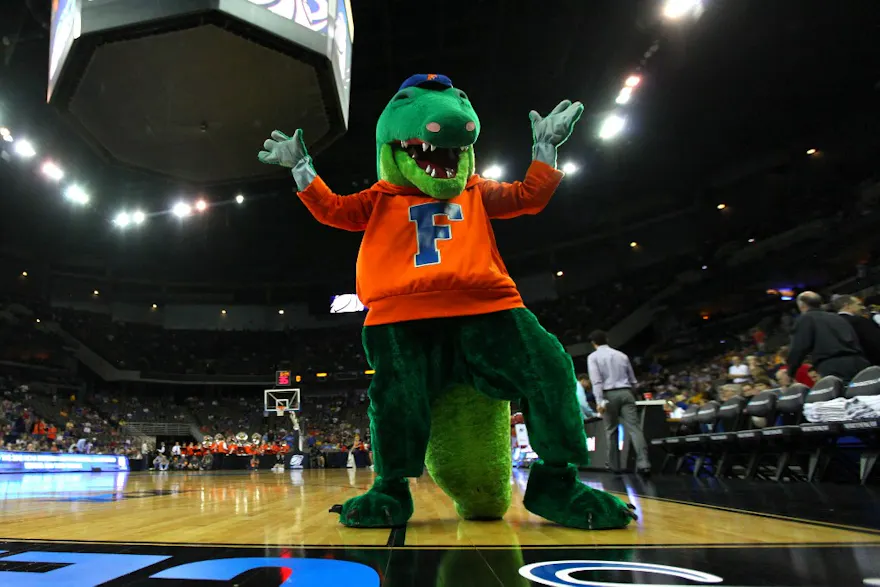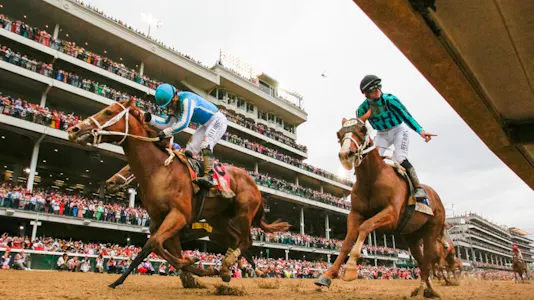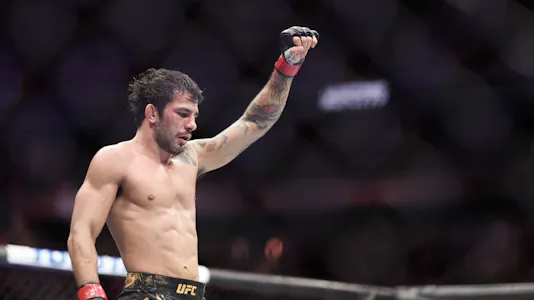Florida Legal Sports Betting Taking on More Legal Battles

The idea of legal sports betting through the best sports betting apps in one of America's biggest states has yet to get off the ground. And if legal battles in Florida continue over such a platform, the effort will keep getting bogged down.
The latest court battle surrounding the yet-to-be-legislated legal sports betting scene tied to the best sportsbooks in the Seminole State is a pair of Florida pari-mutuels launching an appeal. It requests a rehearing aimed at contesting a compact between the Seminole Trible, the State of Florida, and the U.S. Department of the Interior.
That "rehearing en banc" requested by West Flagler Associates, operator of casinos in the Sunshine State, ultimately means that the potential launch of Hard Rock Bet Sportsbook in the state is on hold again. The launch had been planned for prior to the upcoming NFL season.
How long will it be delayed? It depends on just how long it takes for the appeals court to hear and ultimately decide on the arguments.
A little recent history on Florida
Getting legal sports betting off the ground in Florida has been a tall task, to say the least. Back in 2021, Governor Ron DeSantis renegotiated the state's Tribal Compact to allow for the Seminoles to start offering mobile sports betting in the Sunshine state, only to have a host of appeals appear after the agreement.
Pari-mutuel operators in Florida sports betting claimed that the compact was in violation of the Indian Gaming Regulatory Act (IGRA), causing Hard Rock operations in the state to cease pending those appeals.
It's been an up-and-down battle since, including the most recent fight over a lower-court 2023 reversal of a decision that originally blocked the compact between the government, specifically the U.S. Department of the Interior (DOI) and the Seminole tribe "monopoly" on Florida sports betting.
West Flagler Associates is the latest pari-mutuel group to petition for a rehearing of the issue in Federal Court. Its petition challenges the compact that gives the Seminoles the exclusive right to offer retail and mobile sports betting in the state.
West Flagler Associates' claims that allowing the compact to proceed as written was a violation of the Indian Gaming Regulatory Act, which stipulates that any gambling through tribal means would need to take place on Native American lands.
The argument for the Seminole Tribe is that servers for mobile sports betting would be located on Native American Lands and therefore the gambling activity is technically taking place on their territory.
A spokesperson for the tribe also cited the June 30 D.C. Circuit Court of Appeals' unanimous overturning of the District Court's prior blocking of the Seminoles' sports betting launch in the state.
“It’s important to note the three-judge panel of the US Court of Appeals for the District of Columbia Circuit issued a unanimous decision in favor of the US Department of the Interior, which approved the Gaming Compact between the Seminole Tribe and the State of Florida,” the statement read.
What now?
The most recent court stay on the issue of the Seminole’s exclusive right to offer legal retail and mobile sports betting in the Sunshine State prevents the Tribe from launching sports betting until the issue is argued in Federal Court.
It will likely need to come before the Appeals Court, and a date for those arguments hasn't yet been given a time frame. It would put the issue before all 11 judges of the D.C. Circuit Court, bypassing the original three-judge panel that favored the overturning of the original stay for the Seminole Tribe to offer sports wagering.
The DOJ has a couple of choices about how to address the latest challenge to the Seminole Tribe's attempt to bring a legal sports betting platform to Florida featuring betting sites. The DOJ could be asked to simply respond to the petition, or it could refuse to grant a rehearing on the previous decision without a response.
West Flager still has an avenue it could pursue. The firm could file a motion in either the U.S. Supreme Court or State Court to have their request for a rehearing read.
All options would sidetrack a desired Sept. 7 legal sports betting launch.
More chances coming
West Flagler Associates face an uphill battle to even get the case heard by the 11 judges on the D.C. Circuit Court panel. En banc hearings are rarely granted.
If the hearing is denied, the original ruling by the three-judge panel would remain in place and the Seminoles could go forward with their launch of Hard Rock Bet.
The best that the pari-mutuels could hope for is that their en banc hearing request succeeds. In that case, months of negotiation and hearings would take place, putting in jeopardy the September, pre-NFL season Hard Rock Bet launch in the Sunshine State.
So now it's up to the courts to either refuse to hear the pari-mutuel request or not. Both options put the Sept. 7 target for launch in serious peril, unless the courts agree on an expedited hearing.
It means that for now, legal sports wagering is once again up in the air for bettors in the Sunshine State. It also puts on hold the right for the third-largest state population in America of 21.5 million (plus an estimated 120 million annual tourists) to place a bet on sports when in Florida. It pauses the creation of an estimated 2,200 jobs in the state and an immediate $2.5 billion cash infusion coming directly from the Seminole Tribe.
"Wait and see" has become a theme for Florida's legal sports betting scene. And with the latest challenge, it looks as though that theme will persist, at least for now.
Will Floridians be able to wager on the NFL this year? Most insiders are leaning "Yes" on that question, but the legal challenges certainly threaten to slow the launch down.







